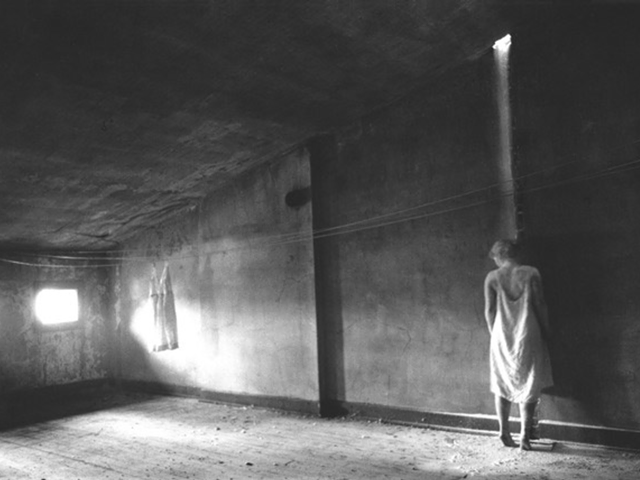T
he story has long been set in Rock & Roll lore: Ian Curtis, lead singer for Joy Division, hanged himself the day before the Manchester, England-based band was to embark on its first tour of America. It was May 1980, less than a year after the band released its acclaimed full-length debut, Unknown Pleasures, and a month before it dropped its breakthrough single, “Love Will Tear Us Apart,” and what would be its final album, the spookily apt Closer.
Rather than wallow in the despair of Curtis’ untimely demise, Joy Division’s three surviving members — bassist Peter Hook, drummer Stephen Morris and guitarist Bernard Sumner — immediately formed New Order, which would become one of the most popular Pop acts of the 1980s.
A number of books about Joy Division have popped up over the years, some of which have focused on the band’s singular brand of moody Post Punk, some of which have tried to assess the band’s brief but vital trajectory amid the late-’70s Manchester scene.
Now, more than 30 years on, Hook has written Unknown Pleasures: Inside Joy Division, a comprehensive, illuminating portrait of the band that often takes the piss out of its doom-ridden legacy. CityBeat recently connected via phone with the bassist turned author to discuss the monumental impact of The Sex Pistols — Hook and Sumner attended the Pistols’ first live gig in April 1976 — the three remaining Joy Division members’ inability to deal with Curtis’ death and that same trio’s role in not one but two influential bands.
CityBeat:
Why did you want to write a Joy Division book now?
Peter Hook:
I just basically read one book too many about Joy Division by people who weren’t there, and I thought, “Now is the time to tell my side of the story, to tell the story from inside the group by somebody who was there.” It’s as simple as that really.
CB:
You portray Ian as just another one of the lads, which is quite different than his “tortured artist” reputation. Did you intentionally want to demystify his persona?
PH:
Ian deserves his mystical status because he was a fantastic musician and a fantastic lyricist, and he very unfortunately and sadly met a tragic end, but if I’m going to write about Ian, I can only write about the Ian that I know or that I knew from my point of view. What happened after Ian’s death was that everybody played up his (perceived) personality. Ian to me was a good friend and a good laugh. Unfortunately, his ailment (he suffered from epilepsy) got the better of him.
CB:
The other thing that jumped out about the Joy Division you portray in the book was the amount of chance involved in the band’s formation and creative evolution.
PH:
The interesting thought that struck me yesterday was that when I walked into that first Sex Pistols concert I was normal. I had a 9-to-5 job. I lived at home with my parents. I was quite happily normal, and when I walked out I came out a musician. Musicians are self-absorbed, highly driven and completely focused on what they want to do in life. If you’d told me on the way in what I was going to be like on the way out I would have completely disagreed with you. It gave me a direction I never considered before, which was music. I never played a musical instrument. If I had not gone that night I may not be talking to you now.
CB:
There were a bunch of great UK bands in the late ’70s, which, for my money, was one of the greatest eras in Rock history: Wire, The Clash, The Buzzcocks, you guys, Gang of Four. It was interesting to get your take on that era in the book. What was it about the UK at that time that produced so many good bands?
PH:
The great thing about that musical period was that we didn’t do it for money or fame; you did it because you had a drive and a cause. The cause was the demystification of Rock. I went to see Led Zeppelin about two weeks before I went to see The Sex Pistols. I didn’t look at (Led Zeppelin bassist) John Paul Jones and think, ‘I can do that.’ But when I saw The Sex Pistols I thought, ‘I could do that.’ The whole mantra was, “Get off your ass and do it, make a difference.”
CB:
One of the more curious moments in the book is when, on the evening Ian died, (Joy Division manager) Rob Bretton tells you and the other surviving members, “Don’t worry, Joy Division will be big in 10 years.” You don’t really put that comment in context in the book, but that seems like an odd thing to say given the circumstances.
PH:
It was his idea of solace, I think. Like, “Don’t worry, lads, you’re underestimating yourselves, and your influence will still be big in 10 years, 20 years and even 30 years.” He was absolutely right. In the same way that The Doors had an influence after their demise, he felt presumably that Joy Division would as well, because he believed in the music. He adored the music, and he adored the band, and that’s why I suppose in an odd way we were all so affected by Ian’s death. We all wanted to carry on. It’s a quite strange situation. To be in one band that changes the world is pretty good. But then to — as Rob and (Factory Records guru and general raconteur) Tony (Wilson) and we did with New Order — to do it again is pretty good, isn’t it?
CB:
You do say in the book that you felt guilty about what happened and that you should have tried stop Ian from doing what he did. But how would you have done that? What would you have done differently?
PH:
Well, that’s the 56-year-old Peter Hook trying to give advice to the 23-year-old Peter Hook, isn’t it? With suicide you’re always left with that feeling that, “Ah, shit, I didn’t read it right. I should have done more.” That’s what suicide does to the people who are left behind, and the thing is that I live with Ian every day. I’m surrounded by pictures of him, I’m always asked questions about him and I’ll play the music, so the guilt, in a funny way, never goes away.
CB:
Looking back, it’s interesting that you only knew Ian for a little more than three years.
PH:
Yeah, but the intensity of the relationship that you had because you were in a group together, the hopes and the dreams you shared, it felt like I knew Ian all my life.
PETER HOOK discusses Unknown Pleasures 7 p.m. Monday at Joseph-Beth Booksellers.





